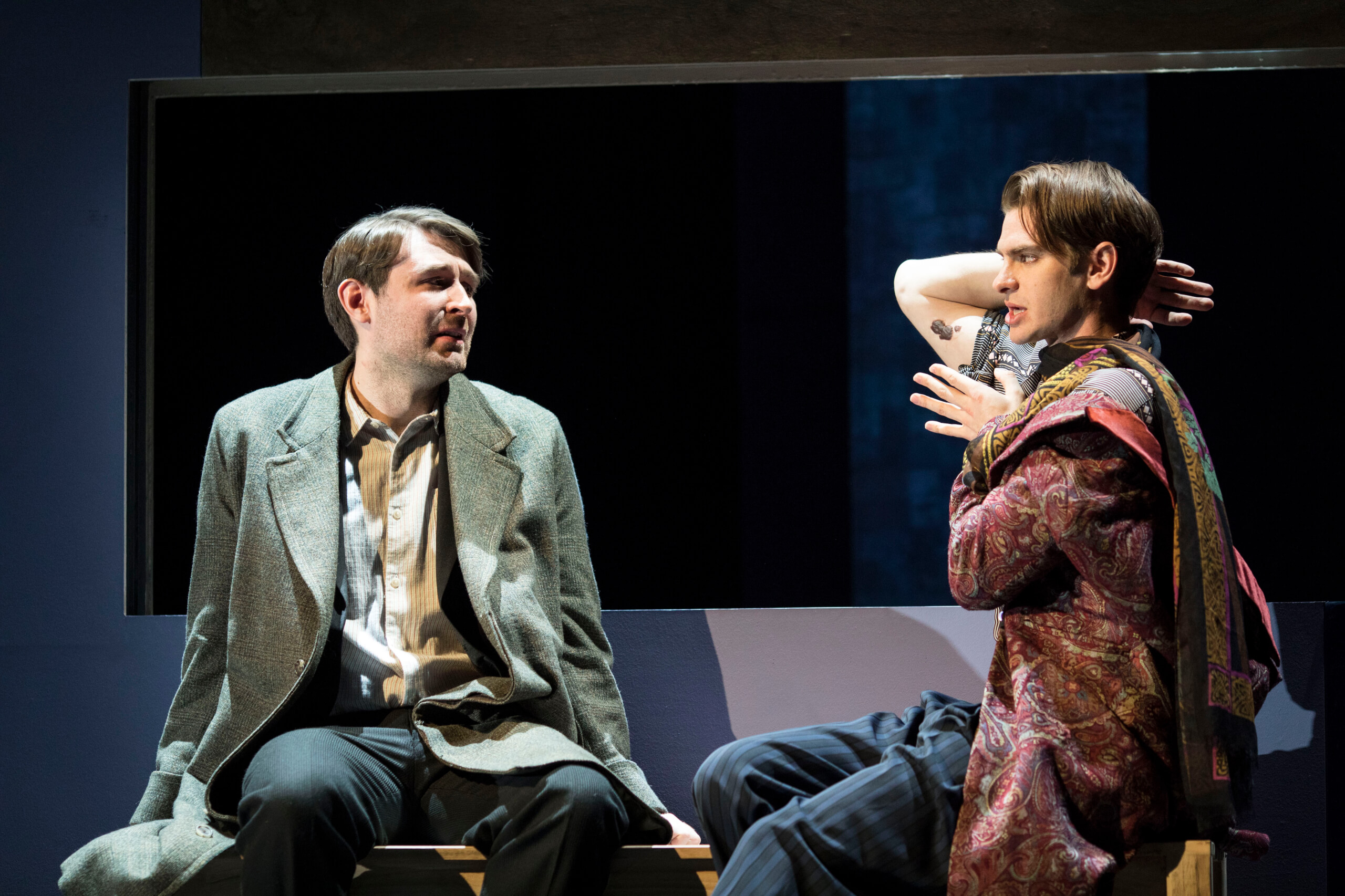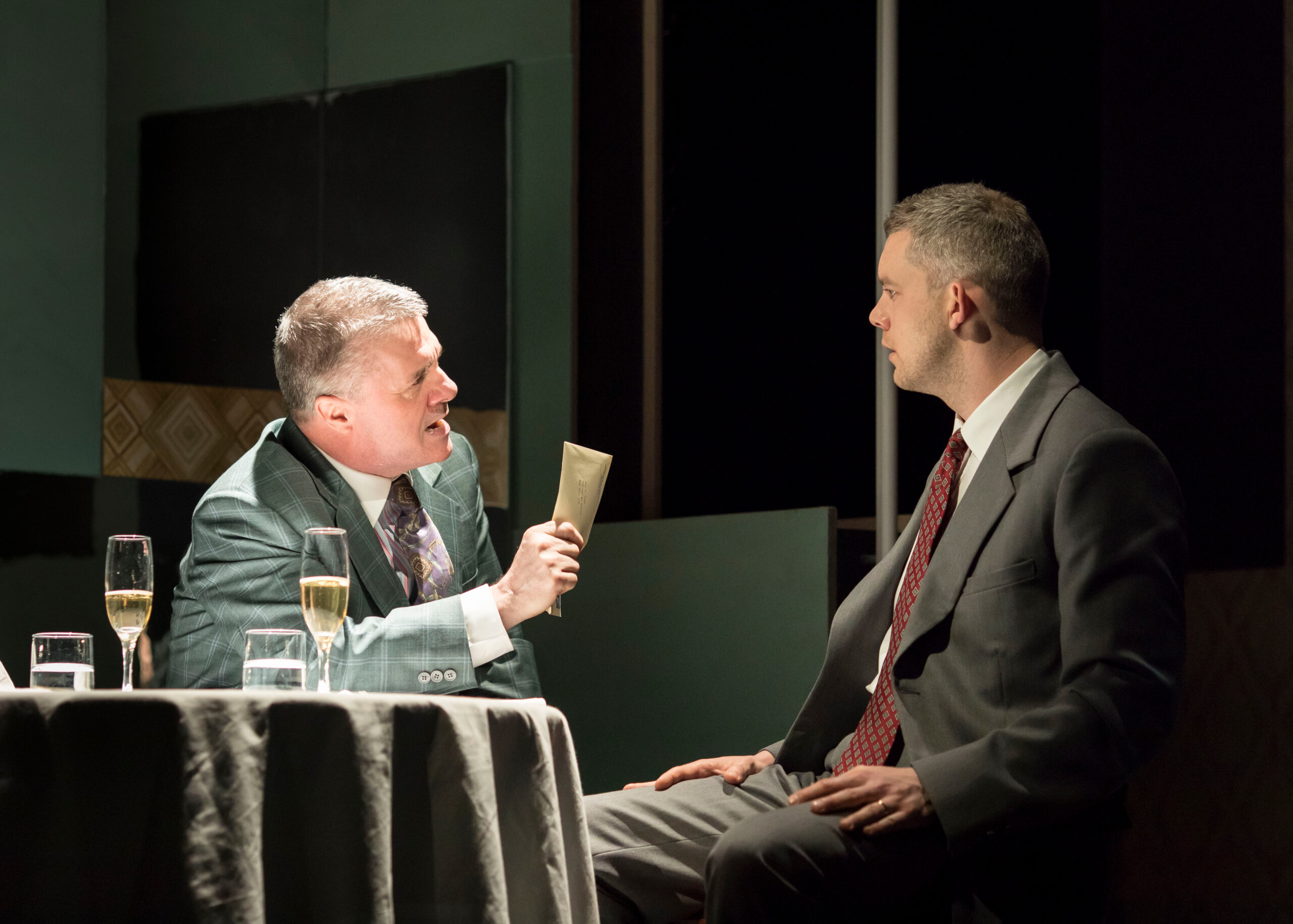About Time You Saw: Angels in AmericaBy Gilly Hopper
7.5 hours is a long running time for any play, but then time is a fickle little construct. Written in 1993 by Tony Kushner, Angels in America begins in October 1985 in the midst of the aids epidemic. Today, in 2017, Kushner’s work retains its relevance with musings on “the left”, gender politics, racial identity, healthcare, fear of otherness and calls to “make America great again,” in addition to the repeated comparisons of now to the Reagan era. While prophecies of the millennium can be disregarded, tragedies of the past are repeated and in this stoic work we see history as prophecy.
Confronting us with political, personal, national, and historical issues, Angels in America at the National Theatre is an immeasurably poignant piece. Directed by Marriane Elliott, Angels in America is a tragic tome pervaded by humour. A gay fantasia in two parts, Part One: Millennium Approaches and Part Two: Perestroika, Kushner’s dialogue is vicious, hilarious and melodious. Directorially, the play is staged with the duality of its narrative in mind. This narrative crossover is aided by Ian MacNeil’s set of free moving cubicles bordered with neon lines which create both functional and symbolic partitions.
With a cast including Nathan Lane, Andrew Garfield and Denise Gough, characters range from lawyers to travel agents and Mormons. Harper and Joseph Pitt (Russell Tovey) are a married Mormon couple originally from Utah. They refer to one another as “buddy”. Their marriage, as you might gather, is strained. Harper Pitt (Denise Gough) is a depressed pill-popper, whose hallucinations challenge her perceptions of reality. Gough’s flexibility from lunacy to perceptiveness is one of the most compelling characterizations of the play.
The play’s other central couple is Louis Ironson (James McArdle) and wasp Prior Walter (Andrew Garfield). Between his hypothesizing on political dogma, Louis (McArdle) gives an abundantly rich performance and his stop start flow of speech is a commendable choice. Andrew Garfield plays Prior Walter with the utmost candor and gives one of the most touching and palpable performances of his career. From outbursts of self-loathing to the delicacies of his gestures – he quaffs his hair with the flick of the wrist and tussles his mane with a manicured hand – his performance is transportative and an Olivier nom seems almost a certainty. Completing their “ménage a trois” is Belize (Nathan Stewart-Jarrett) a black, male nurse, former lover and long time friend of Prior. Stewart-Jarrett’s eyebrows alone deserve accolade for their dramatic prowess. As the ruthless NY lawyer Roy Cohn, Nathan Lane is every bit as relentless. Defiant and typified, Lane’s rocket speed trajectory to intimidation and aggression is as unapologetic as Cohn himself. In real life, Roy Cohn was Donald Trump’s right hand man for more than a decade; worlds collide again.
Engrossed in the lives, the sadness, the struggles and the residing character of these players, it becomes apparent that justice, law and council are often left helpless and redundant in the greatest of atrocities. Part Two, while not an equal match to Part One does present interesting political and philosophical questions, but these are more impacting in digestion rather than consumption. The aspiration of today is not to get to heaven but to live.
Angels in America is an epitaph to yesterday, today and tomorrow, and Rufus Norris is to be commended for its inclusion in the National Theatre’s 2017 programme.
Angels in America is SOLD OUT but will be broadcast to cinemas across the UK and internationally via NT Live; Part One on 20 July and Part Two on 27 July ntlive.nationaltheatre.org.uk







